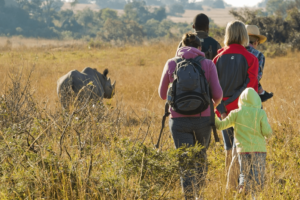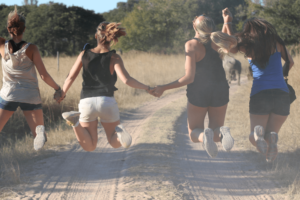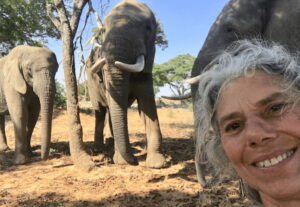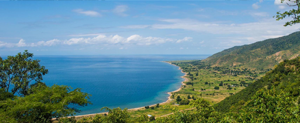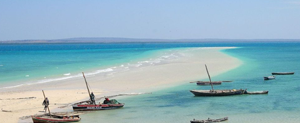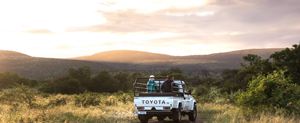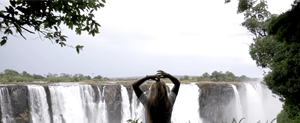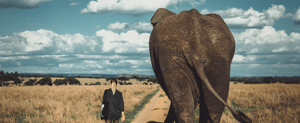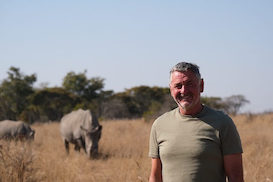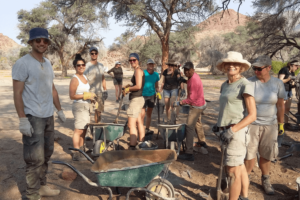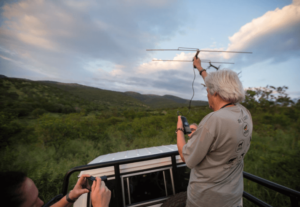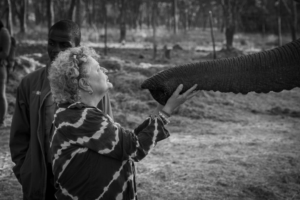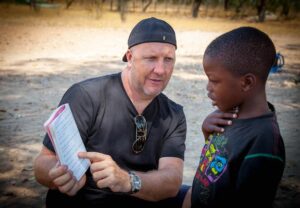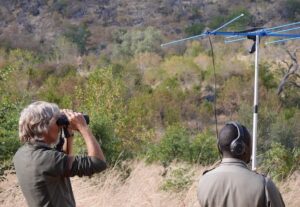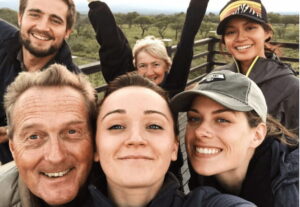How to volunteer abroad when you're over 50
Volunteering abroad for the over 50s is becoming increasingly popular, and volunteering is now no longer the exclusive domain of students and gap year volunteers. In the US, more than 300,000 older adults volunteered abroad in 2019, a figure that has been consistently increasing over the previous decade. A growing number of adults aged 50 and older are interested in performing volunteer work abroad and participation by those over 55 in particular has risen steadily, as baby boomers reach middle age.
At Conservation Travel Africa, around 20% of our volunteers are over 50.
Are senior volunteers needed by programmes?
Programmes and communities are always keen for older volunteers, who can often contribute specific skills, have a lifelong experience of doing things and can often stay longer than younger volunteers. Seeing amazing places, making a contribution and having a life-changing adventure, is definitely now open to everyone – senior volunteers as well as youngsters.
If you’ve just retired, have the time and finances to travel, and have a bucket list to work through, volunteering abroad can tick several things off your list at once. Senior volunteers have a lot to offer, and our volunteer projects for over 50s give you the perfect opportunity to share your skills and make a difference, while meeting people of all ages and backgrounds.
Why not volunteer with your children or grandchildren and make it a shared experience? We have a range of family volunteer programmes that specialise in multi-generational family volunteering.

Am I too old to volunteer?
Almost certainly not! Volunteering abroad when you’re over 50 or when you’re retired is the perfect way to share your previous life experiences and pick up some new ones of your own. Our volunteer projects in Africa are always looking for mature volunteers to join wildlife conservation programmes to help endangered animals, support communities with healthcare, education and income-generating projects, or work in wildlife sanctuaries.
Volunteers aged over 50 are highly valued by volunteer projects abroad because of their life experiences, knowledge and skills.
Volunteering for the over 40s, 50s & 60s - how to get started
So, how do you decide which volunteer project is the right fit?
1. What’s your dream? Maybe it’s walking with elephants; seeing rhinos up close in the wild; working with primates; sharing your skills in a community outreach medical clinic; doing veterinary work with exotic animals or teaching English in rural schools. There’s almost certainly going to be a project out there that fulfils your dreams. 2. How social are you? Do you want to mix with lots of other volunteers of all ages and nationalities, or have a quiet intimate experience? Think about what sort of accommodation you would be comfortable in and find out if there’s a private room available or a separate cottage. 3. What tasks will you be set and is there the option to reduce the workload or skip some activities? Most projects will allow you the position of team photographer if there is one particularly physical activity! 4. What’s the weather going to be like? Whether you’re a sun worshipper or prefer things a bit more temperate, make sure you pick the right country at the right time of year. And remember, lots of Africa gets chilly in the winter! 5. What injections do you need? Some African countries require more injections than others, but many places do not require Yellow Fever or even malaria tablets, making travelling much easier to organise.Read our FAQs for senior volunteering abroad
Our top tips when volunteering abroad for the over 50s:
What do past senior volunteers say about their experiences?
“I am a 60-year-old retired attorney who decided it was time to do something different. I have always loved animals, maintaining homes for such creatures as llamas, a blind deer, and tortoises, to name a few. Another retired attorney and friend had participated in various volunteer projects in Africa and unearthed the Imire program. When we stumbled upon the video, “There’s a Rhino in My House,” we were both hooked.
We spent two weeks performing various tasks such as repairing wash-outs in the road, pulling down unsafe watchtowers, removing old fencing, and painting and constructing new elephant mounting platforms.
I also spent a lot of time with the elephants, usually cleaning their “nests” in the morning and trundling countless wheelbarrows of elephant manure each day. I never tired of seeing the elephants. Even glimpsing them across the dam from the volunteer house was magical, since they are such stately creatures and move so gracefully.
Finally, I neglected to mention that I have suffered from Parkinson’s for about fifteen years. My protective husband thought that I might be a target because of my sometimes visible disability. Exactly the opposite occurred. Often I was targeted by the kindness of the people around me, who rushed to help me if I fell, or assisted me if I was slowing down because of a medication meltdown.”
Marcia, USA, 60, Rhino & Elephant Conservation, Zimbabwe
“I have loved every minute of my time at Imire. From hanging out with Mac and Mandebvu, the adorable elephants, to seeing baby Foggin (the 3-week-old baby rhino). I enjoyed helping cut down trees, shovel elephant poo and repair the fences, as it felt that I was contributing to the wonderful work that Imire does.
The accommodation at Chiwawe was amazing. My own comfortable, cost tent in the wild, with a hot shower and a beautiful view. The food was delicious, home-cooked, fresh and plentiful, and the staff looked after us so well and couldn’t do enough to help.
The guides were extremely knowledgeable and very entertaining. We learnt so much about animals in the wild and the life of the people of Zimbabwe.
I feel very lucky to have had this experience and have felt totally relaxed and present since I arrived. I have met great people and it’s been good to be away from the clouds and stress of life in the UK. I would highly recommend volunteering at Imire to anyone who has an interest in conservation.”
Claire, UK, 59, Rhino & Elephant Conservation, Zimbabwe
“I and a friend spent 4 weeks volunteering on two Conservation Travel Africa programs. We are both in our early 70s and were a little apprehensive about our ability to do the physical work needed, and about travelling on our own through counties with political and cultural differences, very different from any we ever experienced. This was my ‘bucket list’ trip. I’ve been an African elephant lover since I was a teenager; reading dozens of books and collecting hundreds of prints, statues, carvings, etc. My objectives were to experience them in the wild and, to the extent possible, interact with them on a personal level.
For our long hours and physical labor we got to do and see things that are not part of luxury safaris. These included:
- Seeing parts of the park that are available only to rangers and researchers
- Get a good basic understanding of the animal conservation challenges of the park and Africa in general
- Work and socialize with researchers and animal experts
- Touch and feed elephants and rhinos
- See a pride of lions that had not been seen in 18 months
- Help with the release of painted dogs in the park
- Get a real understanding of “TIA” (This Is Africa)
While a few weeks working with conservation specialists will never give us the in-depth knowledge they have on all the issues they face with managing and protecting the African animal ecosystem, we came away with a deep understanding of the major issues with saving species and their impact on the local communities.”
Read Jim and Steve’s full blog post.
Jim, USA, 73, Endangered Species Conservation, South Africa / Rhino & Elephant Conservation, Zimbabwe
“I came to this anti-poaching training course with what I thought was a reasonable knowledge of Africa and its wildlife (previous CTA adventures, David Attenborough) but after only a few hours I realised that my knowledge was not as deep as I thought.
Through a combination of lectures, amazing expeditions into the bush and talking over sundowners (with curious rhinos investigating us on occasions), my knowledge started to expand as the course introduced diverse topics from ecosystems to animals to trees, grasses, insects, spoor, tracking plus the law, anti-poaching and firearms. There wasn’t an area that wasn’t covered.
I came to realise that, while knowledge is important, only by applying that knowledge of geology, terrain, plants, animals and man can you gain a fuller understanding of the whole ecosystem and how everything has a place and purpose.
Les is an amazing teacher with huge experience in the bush. Letting him teach you how to get to within 20 metres of a wild rhino through tracking, observation and bush skills without causing the animal any anxiety is just unforgettable.
Peter, UK, 69, Wildlife Warriors, South Africa
What are the best volunteer programmes for seniors abroad?
Most of our volunteer programmes are open to volunteers of all ages, which means as an older volunteer you are welcome to join any of them you like. However, to make it easier to narrow things down, we’ve put together a list of what we think are the best volunteer vacations for older volunteers.

